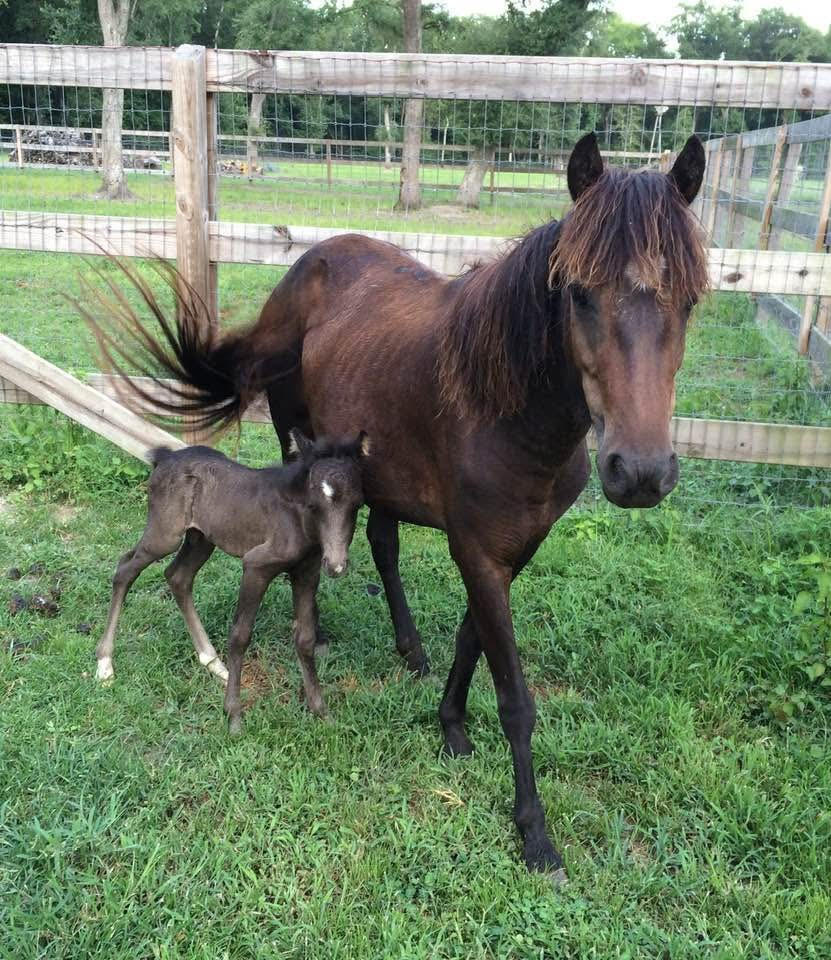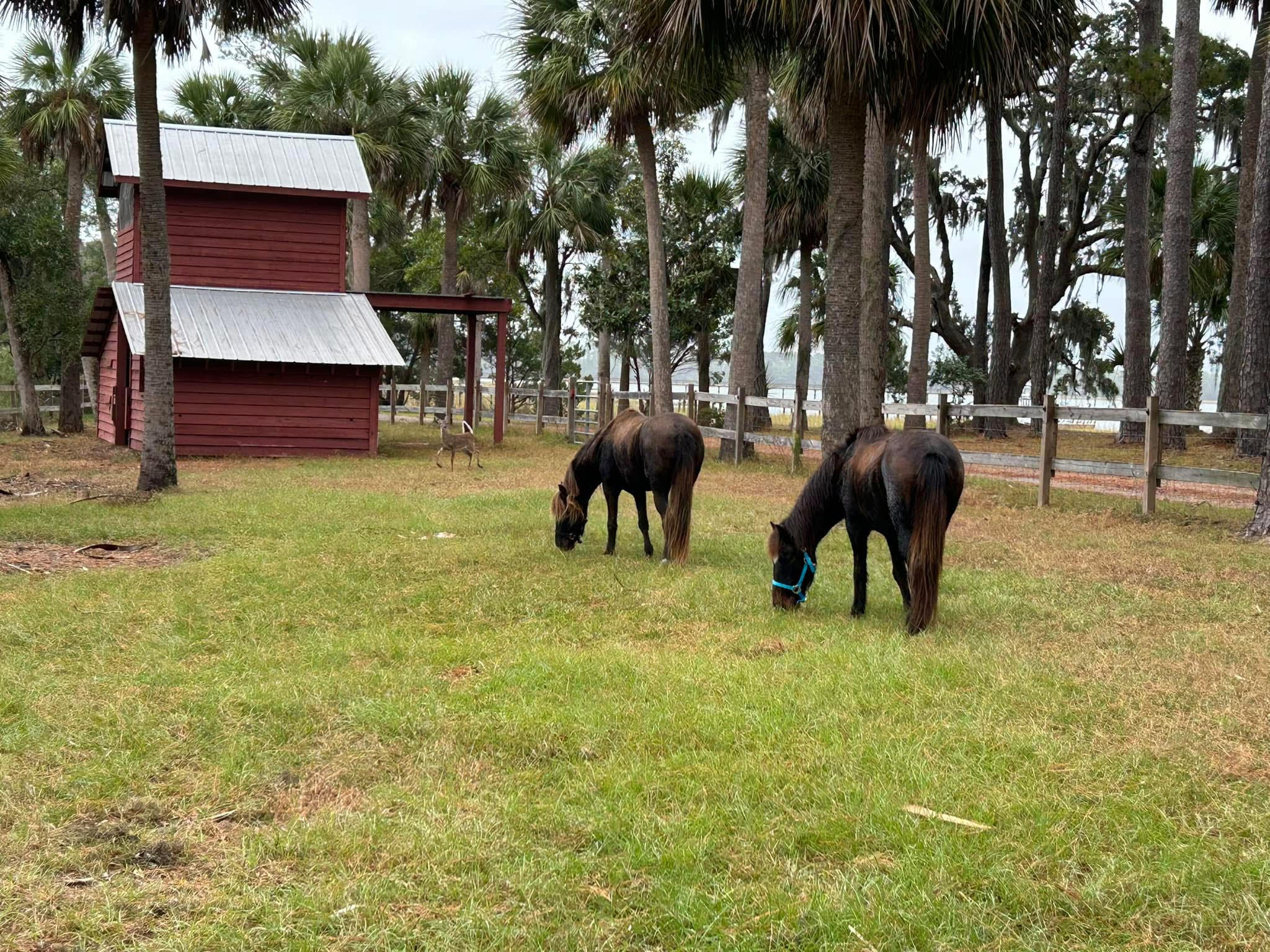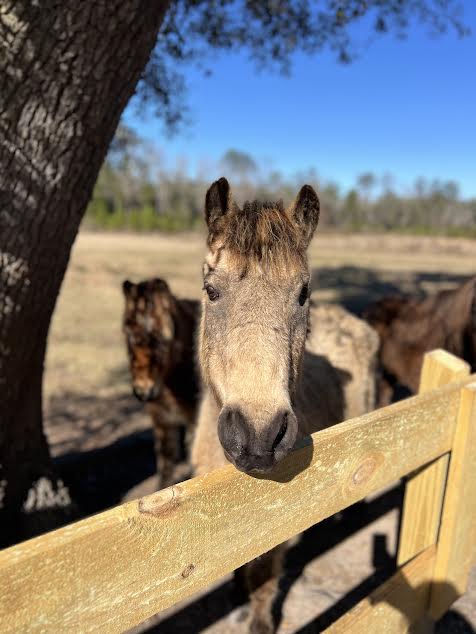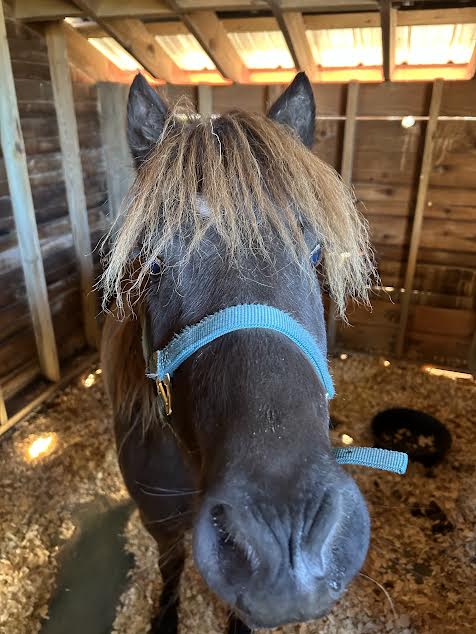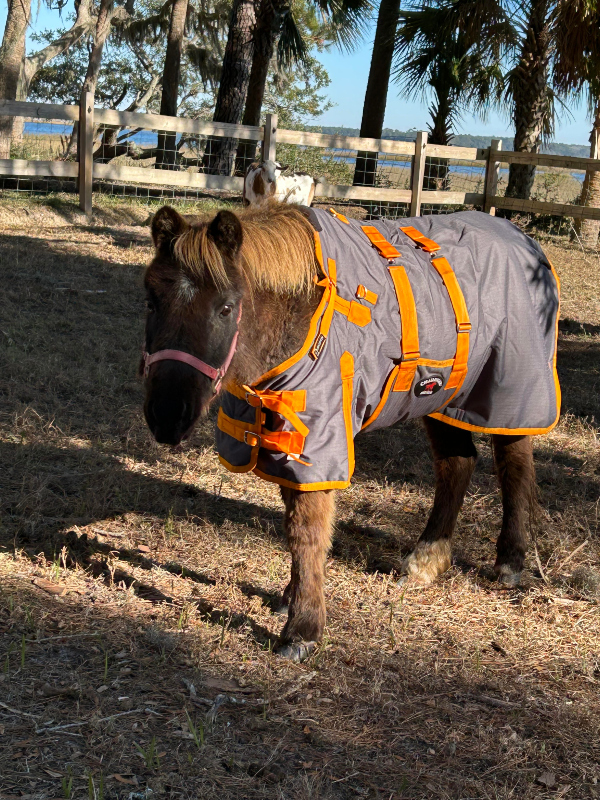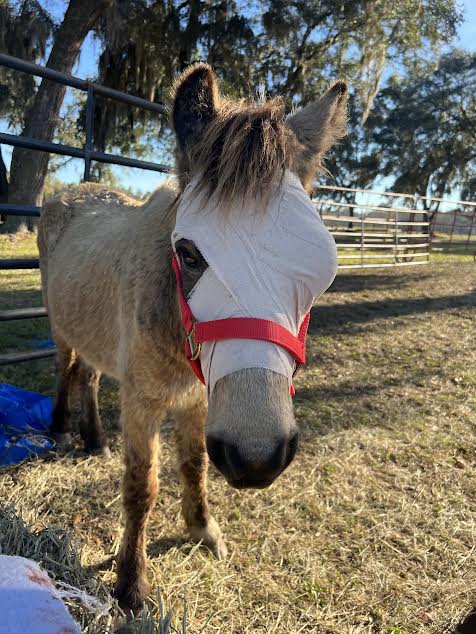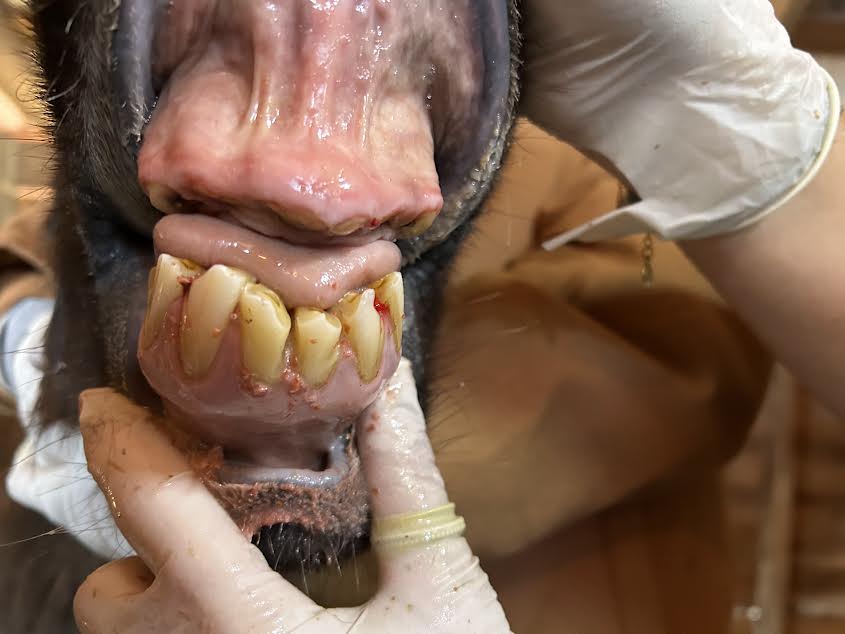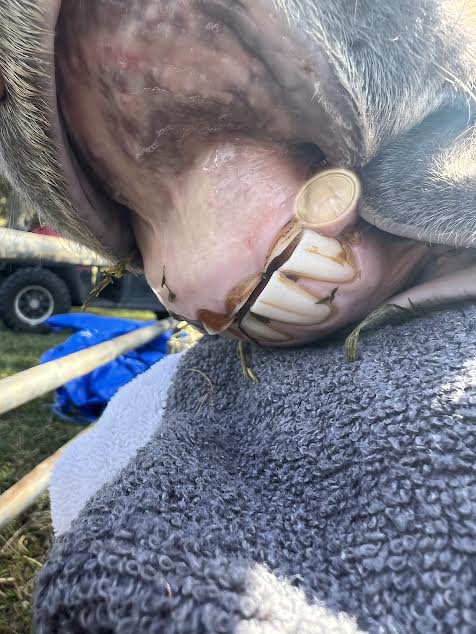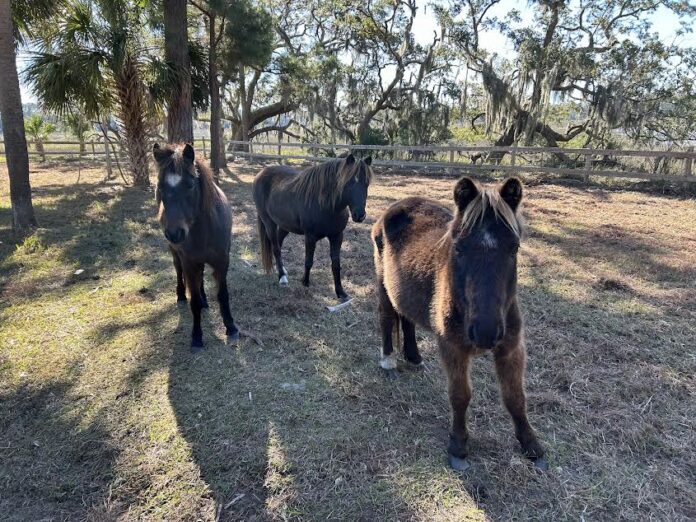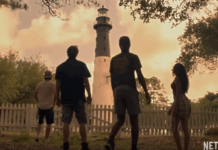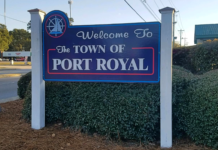For some 60 years, a herd of wild marsh ponies on Beaufort’s sea islands has captured the interest, and the hearts of many people, both locals and visitors to Beaufort, alike.
You’ve seen them. You’ve seen them on Facebook. You’ve seen them on Instagram. You read about them in local newspapers and other publications.
But, they never really belonged there, and as of early November 2024, they had been removed and rehomed locally in the Beaufort County area.
Back in the 1960’s a herd of Shetland ponies were imported and subsequently bred with local Marsh Tacky horses. The herd size grew as large as 50-60 ponies at one time.
Over time, the land the ponies lived on was sold, but the ponies remained. Some were captured and removed, but a herd remained of mixed Shetland & Marsh Tacky lineage, that went on to become known as the wild marsh ponies of the Beaufort sea islands.
The land they lived on was then purchased sometime around the year 2000. At this point only 4 of Beaufort’s wild marsh ponies remained.
During the next 12 years or so the owners of the land were providing hay and feed for the ponies. And, their lives went on as usual.
By 2014, the herd grew to 22 horses.
The ponies eventually found their way into danger by searching for greener grass. Unfortunately, the roaming ponies became a danger to themselves as well as the public. One pony was even struck and killed by a car along Seaside Road on St. Helena Island.
Concerned residents and the Beaufort County Animal Control determined something needed to be done to protect the ponies and the public’s safety. The property where they roamed was also being sold.
A community meeting was held to discuss the future of the ponies and an agreement with the new owners of the property was obtained. The plan was to reduce the herd and to find homes for the ponies that continued to break out.
A retired veterinarian in the community agreed to put together a coalition to bring the ponies into a catch-pen for health checks, geldings, vaccinations, tests, and hoof care.
With several well qualified veterinarians, County employees, volunteers, and a ferrier specializing in hoof care, the ponies were all vetted and received quality care.
Several of the ponies had major health concerns due to long term inbreeding, and all stallions were gelded.
In 2016, Hurricane Matthew, and then 2017’s Hurricane Irma hit the islands. The area received high storm surge and there was major damage to the ponies’ habitat. Severe salt damage to many trees and salting of pastures/grass areas resulted in much reduced grazing areas for the ponies. The ponies fresh water source was also destroyed.
After much back and forth, as well as some agreements and some disagreements, the remaining seven Marsh Ponies were removed.
Beaufort County Animal Services, local veterinary staff, and volunteers helped assist in the removal of the ponies on November 6th, 2024. The entire process went smoothly.
The herd was split into two. Three of the ponies, two of which once were removed now live on a private farm near Bluffton.
The remaining four live on a private farm in Yemassee.
Both of the families who have graciously taken on the responsibility of caring for these ponies plan to have the ponies stay with them in their care until their lives come to a close.
The ponies now range in age from 10-20 years old. They have all settled into their new homes wonderfully. They have received vet and farrier care, that they have not received in some ten years.
Most of the older ponies have no top teeth from eating the marsh grass and sand. One pony, named Passion, had to have an eye removed and required immediate surgery.
Now, in their new homes, the ponies are fed soaked feed twice per day, fresh hay, fresh water and they now have shelter. Neither foster has said they have any plans of turning these wild marsh ponies into “back yard pets”. Both plan to allow them to live mostly unbothered accept when routine vet/hoof care is required.
Four of the remaining seven ponies now live with Nichole Bradley on her farm in Yemassee. Nichole is the owner of Sea Island Carriage Company, and has a wealth of experience caring for horses, as well as a wealth of love for them.
“I was dropping off a stray puppy at the animal shelter, which I ended up keeping, and I offered up my time and space on my farm to foster any farm-type animals that they may come across in the future,” Nichole said. “I guess the right person heard me and mentioned the removal of the marsh ponies.”
“Of course I told them that I was interested in helping them,” she said.
A few weeks later, Nichole was contacted about the removal of the ponies, with one caveat. She was asked to not be a foster for them, but if she could provide them with a forever home.
“With the County willing to help us raise funds for their care and feed, I was absolutely in,” she added.
“They have been with me for a few weeks now, and they have settled right in,” she said, gleefully.
Three of the remaining seven ponies now reside with Brandie O’Brien, on her farm near Bluffton.
“I have four mustangs from the Bureau of Land Management, and a burro, so, of course I needed a wild marsh pony,” Brandie said.
“I had been fostering for the county shelter and helping with wildlife rehabilitation, so I got to know the director. Also, my equine veterinarian, Dr. Carter, let me come along as a volunteer in 2014 when the herd was rounded up for vetting.”
“Several months later, when a few of the ponies escaped the safety of their island, I was able to bring one home, not knowing that she was pregnant. The marsh pony, named Pinckney, and her new son, Nash, both stayed with me, and ended up remaining with me for several years until they were returned to Little Horse Island,” she said.
After hearing that their habitat had been subdivided and was in jeopardy of disappearing, Brandie, and everyone involved, knew that the ponies needed a safe place to go.
“I had waited years to have Pinckney & Nash back,” Brandie said. “And, as an added bonus, we brought home a third pony home with us, who we think is Nash’s sire.
Thanks to amazing veterinarians (Carter Vet Services) and a very patient farrier (Jack Snyder) the ponies have been vaccinated, their teeth floated and hooves trimmed. Dental care and hoof work will continue, as their teeth are very worn down from foraging in a difficult environment and their hooves are very overgrown.
Beaufort’s wild marsh ponies are safe.
They are cared for.
They are loved.
Not a bad life for feral sea island marsh ponies.
Wouldn’t you agree?
If you want to help by donating for the care of these precious wild marsh ponies, you can visit this link.
If you would like to follow along to see how they’re doing, you can check out their very own Facebook page here.
Enjoy some photos of the wild marsh ponies of Beaufort’s sea islands at their new home. Also, here are some photos of the ponies’ medical conditions. Photos are compliments of Nichole Bradley and Brandie O’Brien.
